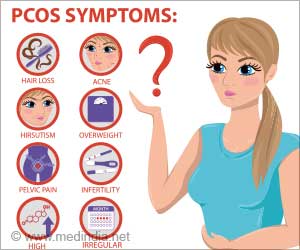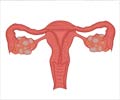Here's a guide to fertility, food, and lifestyle modifications that can help improve reproductive health for women with Polycystic Ovary Syndrome (PCOS).
Highlights:
- Polycystic Ovary Syndrome (PCOS) can make it difficult for women to conceive due to irregular menstrual cycles, elevated testosterone levels, and insulin resistance
- Women with PCOS can increase their chances of successful conception and pregnancy through a combination of fertility treatments, lifestyle modifications, and supplements
- Working with a reproductive professional, tracking ovulation, maintaining a healthy weight, managing insulin resistance, considering fertility treatments, and practicing stress management are all crucial steps for women with PCOS who are trying to conceive
Millions of women worldwide suffer from
Polycystic Ovary Syndrome (PCOS), making it one of the most frequent
hormonal diseases among women of reproductive age. Women with PCOS frequently experience
irregular menstrual cycles, elevated testosterone levels, and
insulin resistance. These factors can make conceiving and carrying a
pregnancy to term difficult. Fortunately, there are numerous strategies available to assist women with PCOS in increasing their chances of becoming pregnant.
Advertisement
Boosting Your Odds of Conception: Supplements and Lifestyle Modifications for Women with PCOS
Here are helpful insights on fertility, food, and lifestyle modifications that might help boost the odds of successful conception. This guide provides a thorough path for women with PCOS who are attempting to conceive, from understanding how PCOS impacts fertility to identifying the appropriate supplements and herbs to support reproductive health. This article is a valuable resource for anyone hoping to start a family despite PCOS, whether you are just starting or have been trying for a while.
Advertisement
Birla Fertility & IVF's Dr. Rachita Munjal Shares Tips for Boosting Your Chances of Getting Pregnant
Dr Rachita Munjal, Consultant, Birla Fertility & IVF, shared some helpful ideas on fertility, food, and lifestyle modifications to boost your chances of getting pregnant in an interview with Zoom TV Digital. Women who are trying to conceive should keep the following tips in mind to increase their chances of success:
Seek the advice of a reproductive professional:
Women must collaborate closely with fertility professionals to design a unique treatment plan that meets their specific needs. Keep track of ovulation:
Ovulation monitoring is critical for women who are attempting to conceive. Regular menstrual cycle tracking, ovulation prediction kits, or ultrasound monitoring can all help with this. Keep a healthy weight:
Overweight or obese women with PCOS may have a more difficult time conceiving because extra weight disrupts hormone levels and interferes with ovulation. Weight loss through diet and exercise can boost fertility. Deal with insulin resistance:
Insulin resistance is frequent in women and can cause ovulation problems. Insulin resistance can be managed with diet, exercise, and medication, which can enhance reproductive outcomes. Consider fertility treatments:
Fertility therapies such as ovulation induction, intrauterine insemination (IUI), or in vitro fertilization (IVF) may be beneficial to women who are unable to conceive naturally. Stress management:
Women should prioritize stress management practices such as exercise, mindfulness, and relaxation techniques because stress can affect fertility.
Advertisement
Empowering Women with PCOS for Boosting Fertility and Achieving Pregnancy
Finally, Polycystic Ovary Syndrome (PCOS) might pose specific obstacles for women attempting to conceive. Women with PCOS, on the other hand, can boost their odds of successful conception and pregnancy with the correct understanding and methods. The best guide for PCOS women seeking to conceive contains a variety of information on fertility, food, and lifestyle modifications that can help improve reproductive health. Women with PCOS can take control of their health and realize their desire of establishing a family by following the advice of our expert. We hope this information has been helpful to anyone navigating the complex world of PCOS and fertility.
Source-Medindia














